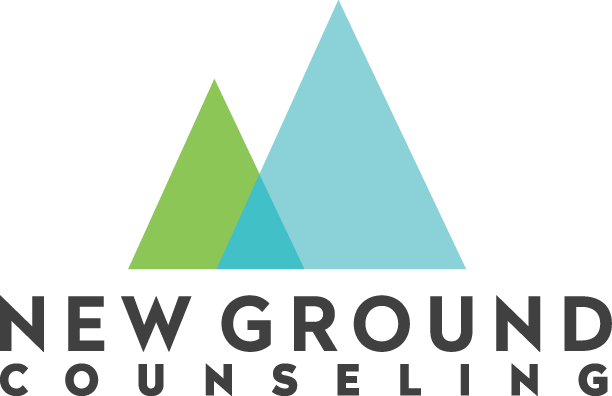Part 1: What is a Christian Counselor?
Part 1: “What is a Christian Counselor?”
Part 2: “Four Models of Christian Counseling (Levels of Explanation & Integration)”
Part 3: “Four Models…” (#3 Christian Psychology)
Part 4: “Four Models…” (#4 Biblical Counseling | Strengths)
Part 5: “Four Models…” (#5 Biblical Counseling | Weaknesses)
WHAT IS A “CHRISTIAN COUNSELOR?” PER SE?
If you were to google “Christian Counselor,” you’d instantly find TONS of therapists practicing under this description. But how descriptive is it? What does that title really mean? How Christian is this counseling, exactly?
“Christian” like the YMCA? Or “Christian” like my baptist upbringing?
Is this counseling uniquely Christian? Is Jesus a part it or something?
Or is this a common therapy (i.e. Cognitive Behavioral Therapy) simply conducted by a Christian person?
The truth is, sometimes it means very little (e.g. not a part of counseling at all) and other times it means very much (e.g. it’s all about God).
“CHRISTIAN”
“COUNSELOR”
These words represent two different worlds. Often expressed as two parts of the counselor he/she is trying to reconcile.
Let’s start with “Counselor.”
PART A: THE “COUNSELOR” (ONE’S PSYCHOLOGY)
THE QUESTIONS WE ALL ANSWER
“Hi, I’m Steve. I’m a counselor.” The word ‘Counselor’ here usually refers to one’s psychology. Steve has a therapy. And that therapy represents beliefs/commitments to resolve universal set of big questions:
What is wrong with us (what is abnormality)?
What would it mean to be healthy (what are we trying to achieve here)?
What does a person consist of (body, brain, soul, thoughts, behaviors, etc.)?
Of those, which parts are most important (what should we focus on)?
How do people change (model of therapy)?
ALL counselors answer these questions. From the moment you begin counseling. For example, if I’m experiencing difficulties in my marriage, Steve’s job is to help me (in some form) to understand what’s wrong, what to focus on, what healing in me/my marriage might look like, and have a process for getting there.
And to be honest, the answers vary GREATLY from therapist to therapist, from camp to camp: Psychodynamic, CBT, DBT, EFT, Gestalt, Narrative, Solution Focused, etc. They all give different answers. This is why we have over 2000 different therapies out there.
And for the Christian, the well gets even deeper…
PART B: THE “CHRISTIAN” (ONE’S THEOLOGY)
Theology complicates care. Those initial questions (What is man? What is wrong? What is health? How do people change? Etc.”). God answers them too. The Bible speaks to them. And if you’re a Christian, this worldview is wide and far-reaching. It gives deep categories of God’s person, death/life, man’s purpose, suffering, enjoyment, relationships, and more. Because of this, it also has plenty of instructions that inform our notions of counseling issues such as depression, anxiety, grief, marriage, sexuality, addiction, etc.
If I’m experiencing anxiety, does being a Christian change how I might understand that struggle, or myself, or my circumstances, or my goals? Yes, definitely.
Lastly, consider how Christians approach the Bible differently. They represent varying theologies around God’s character, Salvation, the Holy Spirit, Anthropology, Heaven/Hell, Sin, and Ecclesiology (the church), etc. Protestant, Anglican, Baptist, Lutheran, Reformed, Methodist, etc.
These are all things that Christians believe. They would have to shape how a Christian Counselor does therapy; how they see the client across from them.
So, for a “Christian Counselor”:
Part A (One’s Psychology) is complex (and important)
Part B (One’s Theology) is also complex (and also important)
But the models emerge when you try to put them together.
CONSTRUCTING A MODEL OF CHRISTIAN CARE
“Christian Counselors” are all trying to find a meaningful way to make sense of Part A (“Psychology”) and Part B (“Theology”).
Which comes first, my theology (God’s word) or some sense of observational psychology (God’s world)?
If they both answer the same questions, does that mean psychology is itself religious or theological?
As a Christian, what happens when a psychology disagrees with my theology?
How does this affect my words, approach, or treatment in counseling?"
It take deep reflection to establish how these work (or don’t work) together—to construct a Christian understanding of care (derived from God, the Bible, and/or Christian concepts) and its relationship to other models of care (i.e. counseling, psychology, medicine, etc.).
Okay, you get it, so now, let’s look at how this plays in the Four Major Models of Christian Counseling…
